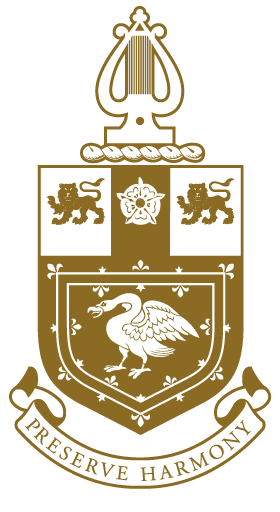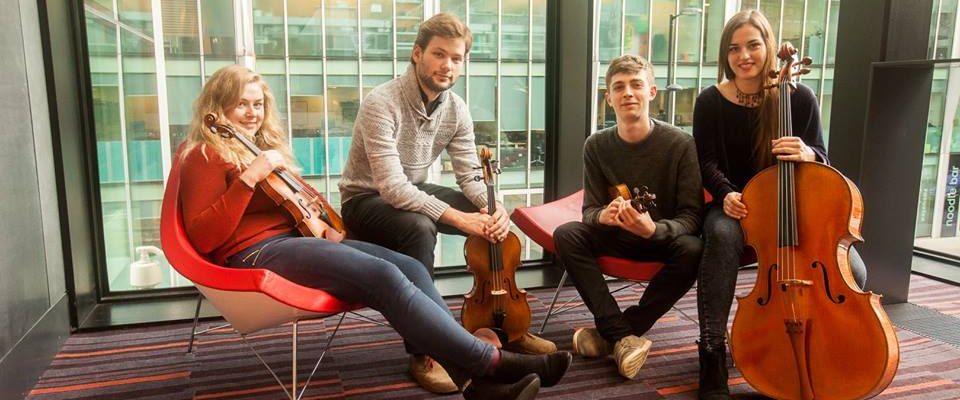The John Clementi Collard Fellow 2013: Joanna Lee
Composer Joanna Lee is winner of the 2013 Company’s John Clementi Collard Fellowship. An Honorary Member of the Birmingham Conservatoire and PhD in composition student, Joanna is currently working on a new commission for English National Opera – ENO’s first children’s opera – in between a busy teaching schedule.
‘I began work on my children’s opera for English National Opera in Easter 2013, in preparation for its premiere in December 2014. Given the size of the piece, equating to over 18 months of solid work, it was vital to choose subject material I felt great zeal for to maintain inspiration, enthusiasm and dedication.
The opera was to be based on a picture book. I spent numerous days in the children’s section of my local library and bookstore, updating myself and delighting in the new books and authors since my own childhood. Despite an abundance of options, the work of Oliver Jeffers leapt out – his books show originality, craft and flair; the same facets one strives for in composition. In conjunction with the director Katie Mitchell, we chose the book The Way Back Home. Not only did this title offer the desired zeal, it also transferred well to stage and afforded varied musical landscapes to hold the attention of young minds.
The story is of a boy whose pet penguin finds a Spitfire in the garage. The boy takes the plane for a fly but runs out of fuel, causing it to crash land on the moon, whereupon he meets some moon monsters who wish to eat his brain and a friendly Martian in the same predicament. Together, the boy and Martian conjure up plans to find their way back home. Perfectly ordinary subject material! Yet ideal for the fantastical world of children’s opera.
Composing is often self-focused, instigated and driven by the composer’s desired explorations. This project has been different – there is somebody else to consider, children have been at the forefront of my choices. Short scenes and fast pace were chosen to keep children’s attention, the texture built on hearing words without surtitles and the instrumentation was chosen to afford vivid colours. Through this, the hope has been to make the work appealing and relatable for children.
The librettist, Rory Mullarkey, created extra characters to those of the book – a chorus of four Gizmos who make all the sounds in the world. The text is two-fold, combining narrative-led sections with sound poems; in turn, the vocal lines see the boy and Martian singing in a lyrical manner against the Gizmos, who perform onomatopoeia-based extended vocal techniques, e.g. the Spitfire’s engine and the eating sounds of feasting moon monsters. These are vocalisations that the children themselves can make.
Despite a quest to be relatable, I have been mindful not to dumb-down the work and compromise what I would ordinarily do compositionally in terms of style, the technical proficiency of the work and the challenge for the players. The score contains elements I would ordinarily pursue, such as 12-tone rows, pitch clusters and extended techniques. Children’s opera is a difficult genre, balancing and catering for the needs and interests of many varied contributors and recipients.
It has been eye-opening to realise how open young ears are; their thoughts are not yet cluttered with preconceptions or a reluctance to try new things. In May, we had three days of workshop on the opera, which included a performance to an audience of children, who offered an honest yet positive response to contemporary classical music. This workshop also explored direction and staging, highlighting aspects I need to consider in the score; something new for composers who spend their time entrenched solely in music and concert halls.
August saw a second workshop dedicated to music, an opportunity to hear my score with all singers and instrumentalists. As much as I think I know how my score sounds, hearing one’s music in real life always brings surprises and subsequent alterations. And this is the stage I am currently at…
The score has been created and is with the singers but I continue to work on polishing the orchestration in preparation for the instrumentalists’ time with the work. When rehearsals begin, the score will undergo more amendments when aspects such as staging and acoustics come into play. This has been another new experience – submission of the score does not mean completion; an opera score isn’t final until opening night.
Composing The Way Back Home has been a lengthy process, full of delight and challenges. The members of The Worshipful Company of Musicians have provided a welcome sounding board and support throughout this, discussing ideas for the opera and experiences during the process. I combine composing with a busy teaching schedule and thus, I have been immensely grateful for funding from The John Clementi Collard Fellowship as it has enabled invaluable periods away from teaching to focus time entirely on the opera.’
The Way Back Home will be performed on 11th-23rd December 2014.
A review of the production can be found here .





